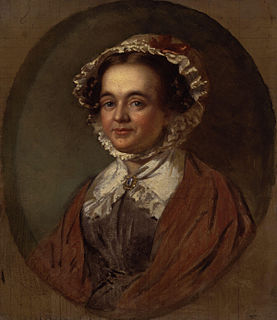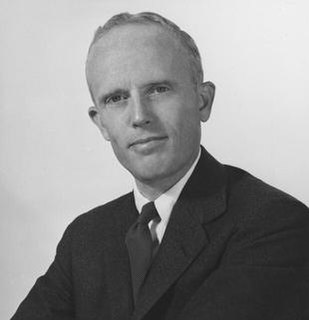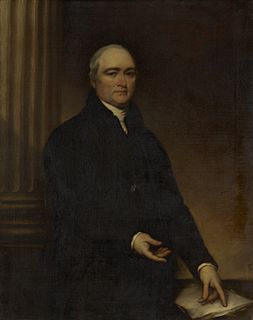A Quote by Mary Russell Mitford
The power of admiring whatever is deserving of admiration, the nice and quick perception of the beautiful and the true, is one of the highest and noblest of our faculties, born of taste, and knowledge, and wisdom, or rather it is taste, and wisdom, and knowledge, in one rare and great combination.
Related Quotes
Wisdom and knowledge can best be understood together. Knowledge is learning, the power of the mind to understand and describe the universe. Wisdom is knowing how to apply knowledge and how not to apply it. Knowledge is knowing what to say; wisdom is knowing whether or not to say it. Knowledge gives answers; wisdom asks questions. Knowledge can be taught, wisdom grows from experience.
A philosopher is a lover of wisdom, not of knowledge, which for all its great uses ultimately suffers from the crippling effect of ephemerality. All knowledge is transient, linked to the world around it and subject to change as the world changes, whereas wisdom, true wisdom is eternal, immutable. To be philosophical one must love wisdom for its own sake, accept its permanent validity and yet its perpetual irrelevance. It is the fate of the wise to understand the process of history and yet never to shape it.
The most beautiful emotion we can experience is the mystical. It is the power of all true art and science. He to whom this emotion is a stranger, who can no longer wonder and stand rapt in awe, is as good as dead. To know that what is impenetrable to us really exists, manifesting itself as the highest wisdom and the most radiant beauty, which our dull faculties can comprehend only in their most primitive forms - this knowledge, this feeling, is at the center of true religiousness. In this sense, and in this sense only, I belong to the rank of devoutly religious men.
Without knowledge of self there is no knowledge of God Our wisdom, in so far as it ought to be deemed true and solid Wisdom, consists almost entirely of two parts: the knowledge of God and of ourselves. But as these are connected together by many ties, it is not easy to determine which of the two precedes and gives birth to the other.
WISDOM IS dependent upon knowledge. Where there is complete ignorance there can be no wisdom, no knowledge of the right thing to do. Man’s knowledge is comparatively limited and so his wisdom must be small, unless he can connect his mind with a knowledge greater than his own and draw from it, by inspiration, the wisdom that his own limitations deny him. Only God knows all truth; therefore only God can have Real wisdom or know the right thing to do at all times, and man can receive wisdom from God. Wisdom is obtained by reading the mind of God.
Taste, when once obtained, may be said to be no acquiring faculty, and must remain stationary; but knowledge is of perpetual growth and has infinite demands. Taste, like an artificial canal, winds through a beautiful country, but its borders are confined and its term is limited. Knowledge navigates the ocean, and is perpetually on voyages of discovery.
There is oftentimes a great deal of knowledge where there is but little wisdom to improve that knowledge. It is not the most knowing Christian but the most wise Christian that sees, avoids, and escapes Satan's snares. Knowledge without wisdom is like mettle in a blind horse, which is often an occasion of the rider's fall.
You can use reading as a food for the ego. It is very subtle. You can become knowledgeable; then it is dangerous and harmful. Then you are poisoning yourself, because knowledge is not knowing, knowledge is not wisdom. Wisdom has nothing to do with knowledge. Wisdom can exist in total ignorance also. If you use reading just as a food for the mind, to increase your memory, then you are in a wrong direction. But reading can be used in a different way; then reading is as beautiful as anything else in life


































